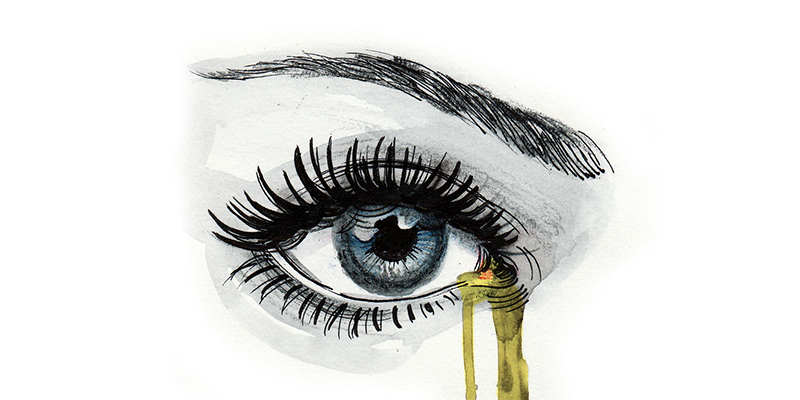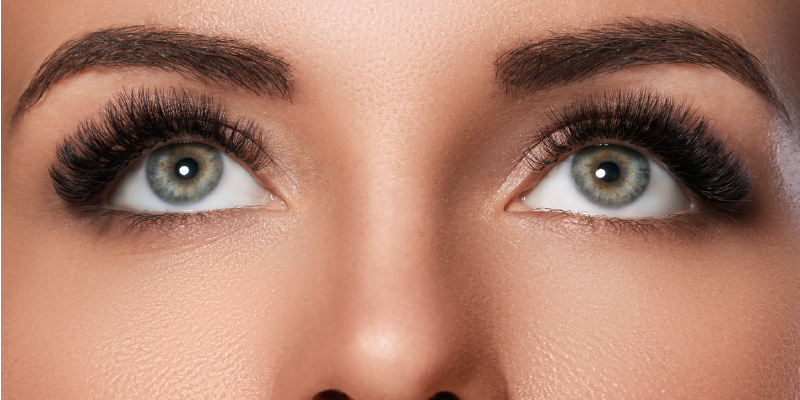While many of us travel around with the mindset that it just can’t happen to us, injuries and problems are pretty common, and no one is immune – especially when it comes to eye injuries.
If you’re to know how to take care of yourself and try to prevent injuries, you may as well know what injuries you’re trying to avoid! Here, we’ll give you the rundown on the five most common eye injuries and what causes them.
Eye injuries can come from just about anywhere, but there are a few causes that seem to rank at the top of the list:
- Falling
- Fighting
- Accidental impact
- Chemical burns
- Penetrating or foreign objects
Scratches or Corneal Abrasions
Your tender cornea can become scratched fairly easily. Typically, what usually happens when something (like a piece of dirt or sand) gets in your eye, which drives you crazy. So you rub the eye, attempting to remove the irritation, but wind up scratching your eye with the irritation, instead. A scratch can also happen when your eye gets hit with a foreign body like a tree branch, or getting poked in the eye with a baby’s fingernail.
Scratched eyes can very quickly become severe problems, so it’s important to see your eye doctor or urgent care center right away to seek treatment. Scratches make your eyes very susceptible from infection with a bacteria or fungus, which can enter the eye and cause serious harm in as little as 24 hours, particularly if whatever scratched your eye is dirty or contaminated. This can result in blindness or loss of the eye.
If you suspect that you may have scratched your eye it is vital that you do not try to treat it yourself. Some ingredients commonly found in many eye medications can actually make these scratches far worse. Don’t rub your eye, and don’t be tempted to put a patch over it (as bacteria love dark, warm places).
Chemical Burns
Any chemical that splashes into your eye or is transferred from your hands has the potential to cause a chemical burn. This includes most common household cleaners and chemicals that you come into contact with on a daily basis. Fumes and vapors can also cause chemical burns, as well. Think about the last time you used a heavy-duty cleaner and you felt a burning sensation in your eyes. They were trying to tell you something!
Some chemicals may sting or burn for a while, but are fairly harmless in the long run, but others may cause serious injury.
If this should happen, it’s important to know what the chemical is, so you can look up the proper care and find out how to wash your eyes. If you work in a facility that uses any type of corrosive chemical, they are required by OSHA law to have an eyewash station available to you, should you happen to get splashed in the face. Hold your head under a steady stream of barely warm tap water for about 15 minutes. Acids can cause considerable burning, but can usually be washed out fairly easily. Alkali substances (like oven cleaners, toilet bowl cleaners, and chalk dust) may fool you. They cause less immediate eye pain or redness initially. They will also have MSDS accessible, giving you more information. Use it when you call your doctor.
Most chemical burns can be prevented by following good safety protocol: by wearing the proper splash goggles the whole time you’re handling these chemicals.
Flash Burn
Anything that can cause a UV burn can also damage the eyes. Yup, they can get sunburn, too. Common sources of flash burns include sunlight, welding, tanning booths, and sunlamps.
That makes it essential that you protect your eyes against the sun and take precautions when welding and other similar activities.
Foreign Object
A foreign object is anything that enters your eye area that doesn’t belong there. That could be as seemingly innocuous as an eyelash or piece of dust. Those things can usually be flushed away. But when the foreign object actually penetrates the eye, that makes for a whole different story. Really. If you get a fish hook or piece of wood lodged in your eye, it’s definitely time to get to the emergency room, maybe even in an ambulance. Trying to take care of it yourself will result in more injury.
Sometimes the foreign body may be embedded in the eye’s surface, but not penetrated into the interior of the eye. This can happen a lot with shards of metal dust. Metal foreign bodies can quickly form a rust ring and a significant scar. Your eye doctor should remove them as soon as possible.
Impact Injuries
An impact injury can occur from anywhere, but they’re commonly seen in sports. You’d recognize the result as a swollen, black and blue eye. The problem is, that’s not always the entire damage. If you suffer from an injury to your eye area, it’s important to check for further injury like a broken eye socket or internal damage.
Subconjunctival hemorrhages (eye bleeding) usually looks worse than it is. It’s just blood leaking from one or more breaks in a blood vessel that lies between the white of the eye (sclera) and the clear covering (conjunctiva). It usually is painless and doesn’t cause any loss of vision. Nor does it require treatment.
Traumatic iritis is inflammation of the iris (colored part of the eye). It can be the result of a poke in the eye or a blow from a blunt object. It usually requires treatment, and there is risk of permanent decreased vision.
There are other eye injuries that may happen as the result of trauma and could potentially be serious. You should always see your doctor right away when you take a blow to the eye.
Caring For Your Injured Eye
When you suffer from these eye injuries, your eye(s) may be painful and irritated for a brief period, or for days later. It’s still very important that you properly clean and care for your eye area just as before, but using kid-gloves.
When you’re not able to wash, scrub, and rinse your face and eyes as you normally do, you can turn to Cliradex for help. The Natural Eyelid, Eyelash and Face Cleanser Wipes can safely remove dirt and oils while killing bacteria and mites. It penetrates deep into the skin and is a natural and soothing facial cleansing agent.





